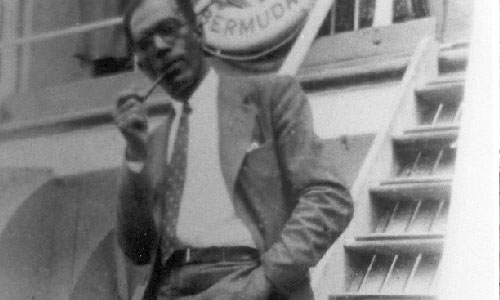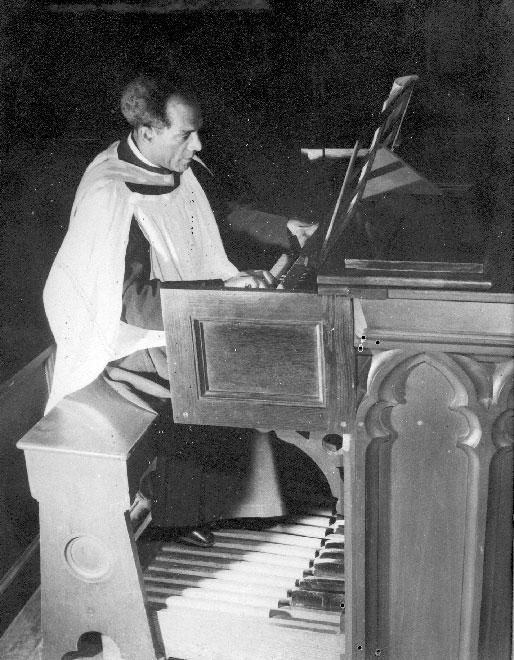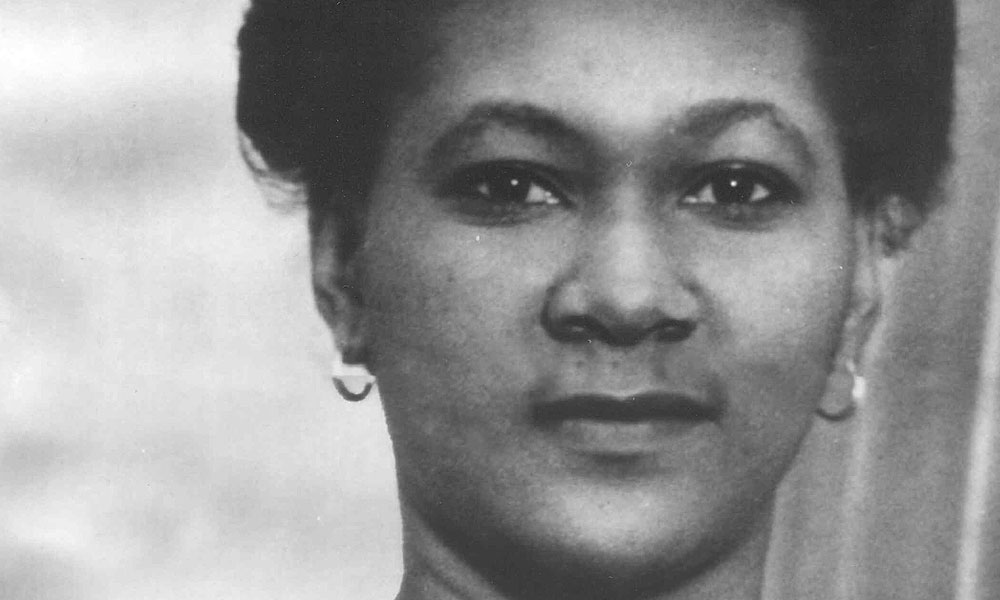
Edward Margetson was born in Parsons on the 31st December 1892. Music was in his blood, in fact it had brought his parents together. His father Henry Francis Margetson was a choral director and his mother, Marie (nee Thomas) was considered the finest pianist of her time. It was therefore no surprise that young Edward showed signs of musical talent at a very early age. At age five, when his feet could barely reach the pedals, listeners thought that his rendition of funeral hymns following his mother’s death was really his father at the piano.
As a youth, Teddy Margetson attended the St. Kitts Grammar School. He was also encouraged by his grandmother to teach himself music and at fourteen years of age he filled the vacancy of organist at the St. George’s Anglican Church in Basseterre. His next appointment was at the Moravian Church where he served as both organist and choir director until June 1919. The Moravians also had a brass band - the only one on the island at that time. It played at church functions but when the First World War broke out it marched through the streets of Basseterre rallying support for the Mother Country. The baton that lead the band was in the hands of Teddy Margetson.
The loss of the family fortune made a career in music impractical and in April 1910 he first found work as a copyist. In July of that same year Margetson was employed as a junior clerk at the Treasury. In the years that followed he acted as Revenue Officer, Tariff Clerk and Cashier.

In 1919 Margetson decided to go to the United States. It meant making do with a lot of things until he had the musical education that he had dreamed of. Soon after his arrival in New York, Margetson took on the post of Organist and Minister of Music for the Church of the Crucifixion, and continued to hold that post until his retirement. He attended Columbia University in 1921, 1922 and from 1924 to 1926 where his compositions features in annual concerts.
He returned briefly to St. Kitts on the 18th August 1923. Margetson also excelled at cricket and during his time on the island helped to orgainse the Progressive Cricket Club. He also contributed ARTICLES ON CRICKET MATCHES TO THE LOCAL PRESS.
His love for writing was not limited to graphic sports commentaries. Margetson was an active member of the Mutual Improvement Society and his talents extended into the field of poetry and essay writing. He also assisted W.A.H. Seaton with the editing of the monthly paper. His interest in the Society’s activities continued even after he had settled in the United States.
The Margetsons returned to New York in 1924 where he attempted to raise the standards of sacred music in the African-American community. Margetson, saw music as “a sanctuary, a haven of contentment” and he longed to share that enjoyment with others. In 1927 together with his sister Marie, he organised the Schubert Society. The name was chosen because, because Schubert was the man who more than any other, made music for pleasure rather than for profit.
Most of the original members of the Society had migrated from the West Indies. The New York Amsterdam News of the 27th June 1992 said the existence of the society is believed to have helped open the door for black classical musicians, who at the time may have been denied the opportunity to sit as members of established orchestras in this city and state.
He was the recipient of various honours and awards. In 1925 he won the Victor Baier Fellowship in Church Music and two years later was awarded a medal by the William Harmon Foundation. Other awards included the Joseph Mozenthal Fellowship in Composition (1934). Margetson’s rendition of The Passion according to Matthew by Johan Sebastian Bach during the Easter season of 1938 was said to have been the first time that that difficult composition was attempted by anyone in New York City. In 1943, the American Academy of Arts and Letters and the National Institute of Arts and Letters gave him a grant of $1000 recognizing his “remarkable work as a composer of a capella music and as the director of a choral group devoted to the finest standard of songs”. The Rosenwald Foundation of Chicago, which had a special interest in African American education, made him a similar award for composition and the creation of a choral group dedicated to the finest standards of song.
Dr. Daniel Mason , the head of the Music Department at Columbia University in an article in The Herald Tribune of the 3rd May 1943 said:
There is in Margetson’s best work a directness, a wholeheartedness, and therefore a persuasive power that is rare nowadays.
In commenting on the significance of these awards, Mason noted that Margetson had been
working quietly among his people in Harlem for nearly a quarter of a century has made in his unostentatious way a contribution, far deeper than many showier ones, both to our creative musical art and to our social democracy.
Margetson’s quiet and unassuming personality encouraged confidence in those who came in contact with him. His unpretentious contributions continued to span the miles to reach his homeland. In 1948 at the height of the Thirteen Week Strike, Rufus King travelled from England to St. Kitts in order to mediate between the Trades and Labour Union and the Sugar Association. He stopped in New York to visit Margetson who expressed concerns over the plight of the island and urged the restoration of peace between the battling sides.
Failing health forced Margetson to retire as Director of the Society in 1960 and on the 22nd January 1962, he passed away leaving behind a wealth of musical compositions.




